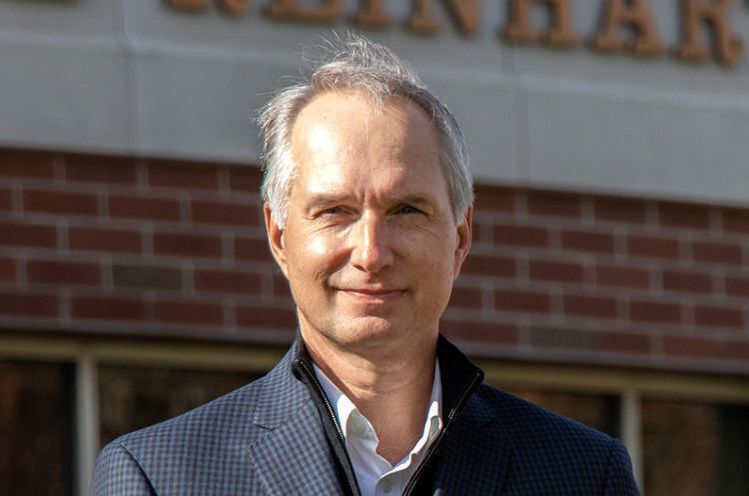Richard Kyte: We desperately need more young people to become teachers
Our nation’s schools have become political battlegrounds. We have forgotten where schools came from, what they do best and what conditions allow our children to flourish within them.
When John Baptist de La Salle opened his first school in France nearly 350 years ago, the young Catholic priest did not know he was introducing radical ideas about education that would become widely adopted throughout the world.
A dying friend asked de la Salle to help him start a school for street children in Rheims, and he quickly found himself deeply immersed in the project. The school’s popularity led to expansion, which in turn led to using his own home as a training center for new teachers, mostly young men from the poorest parts of society who barely were literate themselves.
De la Salle’s schools taught in the everyday language of the teachers and students rather than in Latin. He opened the schools to everyone, regardless of ability to pay. He involved parents in their children’s education. Yet the most radical of his innovations was to group students by age and ability and to have one teacher instruct several students simultaneously.
This new model of education — combining teacher training and classroom instruction — proved to be both effective and popular, so much so that what started out as an experiment soon developed into a system. It is largely the same system we use today: Young people go off to college to receive training in subject matter and teaching methods, and then they are sent out to various communities to teach in classrooms sorted by subject matter and grade level.
Like any system, it is subject to abuse. The Nazis used schools to indoctrinate each German child with antisemitic propaganda to an extent that would have been inconceivable without a sophisticated system of teacher training and classroom instruction. European settlers in our country used schools to separate indigenous children from their communities in a misguided and disastrous attempt at cultural assimilation.
It is important to keep in mind that we still suffer from the long-term consequences of such ill-conceived social agendas, not despite the effectiveness of schools but because of it. Schools are powerful instruments of social formation, and that power can be used for both good and bad ends.
The battles currently taking place in state governments over teaching controversial ideas about race and gender is not surprising, nor is it trivial. Our society is experiencing a serious upheaval regarding long-standing norms, and those who are most passionate about the direction we should take are of course turning to schools as a means of getting us to their preferred destination.
The lesson we should take from history’s failed attempts at social reform is that schools are not the place for waging cultural wars. Any attempt to change society’s norms through schools alone will ultimately fail unless those norms already have broad support within communities. When the desired changes do not have broad support, the controversies that result will end up damaging schools, thereby making them less effective at what they are supposed to do in the first place. When we make schools into a battleground, our children lose.
We are already seeing the results of that damage.
The National Center for Education Statistics reports that over half the nation’s schools were understaffed at the beginning of the school year. Teaching vacancies have been particularly difficult to fill in special education, mathematics and the sciences.
Nearly 70% of schools indicated they don’t have enough qualified candidates applying for open positions. If you have been paying attention to trends in higher education, that should not come as a surprise.
In 1970, U.S. colleges and universities in the granted 176,000 bachelor’s degrees in education, which was about 30% of bachelor’s degrees for that year. In 2020, 83,000 students earned bachelor’s degrees in education, which was only about 4% of the total.
Why are so few young people going into education these days?
There is no single answer to that question. It has to do with a combination of factors, including low pay relative to other professions, long hours, difficult working conditions and a lack of professional respect. But another factor I keep hearing from young teachers is that it is just too demanding. We are asking our teachers to do more and more to fix the problems in our society, and they have less time to do what they feel called to do, which is help children learn and grow.
The key to de la Salle’s schools was putting as many children as possible into quality relationships with adults who could guide them toward a better life. Each abuse of the school system comes from those who forget this lesson and who try to use school curriculum as a way to shape society to their preferred ends.
We would be better off if we acknowledge the limitations of schools as instruments of social reform and remember that they mostly are about the relationships between students and teachers. A society’s most significant ideas, values and attitudes will enter through those relationships or not at all.
We need to encourage the sincere and gifted young people among us to become teachers. Provide them training and support, put them in the classroom and give them broad latitude to do what they do best. Our children will be better for it. Our nation will be better for it, too.

